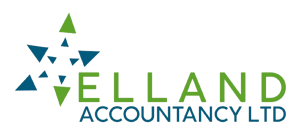Understanding Small Business Accounting
Navigating the intricacies of small business accounting is crucial for financial success. Whether you’re a seasoned entrepreneur or just starting your venture, grasping the fundamentals of accounting is essential. Small business accounting involves more than just recording transactions; it’s about gaining insights into your business’s financial health and making informed decisions to drive growth.
This is what small business accounting entails:
- Recording Transactions: This includes documenting all financial activities, such as sales, purchases, and expenses.
- Financial Analysis: Analyzing financial data to assess the performance and profitability of your business.
- Financial Reporting: Compiling financial statements, including income statements, balance sheets, and cash flow statements.
- Budgeting and Forecasting: Planning and projecting future financial performance based on past data and market trends.
- Tax Compliance: Ensuring compliance with tax laws and regulations, including filing accurate tax returns and making timely payments.
Now, let’s transition to explore the best practices for small business accounting to help you streamline your processes and achieve your business objectives.
Best Strategies for Small Business Accounting
Implementing best practices in small business accounting is essential for maintaining accurate financial records, maximizing profitability, and ensuring compliance with tax regulations. By following these guidelines, you can streamline your accounting processes and set your business up for long-term success.
1. Use Accounting Software
Invest in reputable accounting software tailored to small businesses. This technology automates many accounting tasks, such as invoicing, expense tracking, and financial reporting, saving you time and reducing the risk of errors.
2. Maintain Regular Bookkeeping
Consistent bookkeeping is crucial for staying organized and up-to-date with your finances. Set aside dedicated time each week or month to reconcile bank statements, categorize transactions, and update financial records.
3. Separate Business and Personal Finances
Keep your business finances separate from your personal finances to maintain clarity and facilitate accurate reporting. Open a business bank account and use it exclusively for business transactions.
4. Monitor Cash Flow
Regularly monitor your cash flow to ensure sufficient funds are available to cover expenses and invest in growth opportunities. Use cash flow forecasts to anticipate fluctuations and plan accordingly.
5. Keep Detailed Records
Maintain detailed records of all financial transactions, including invoices, receipts, and bank statements. Organize documents systematically to facilitate easy retrieval and support audit trails.
6. Reconcile Accounts Regularly
Reconcile your accounts regularly to identify discrepancies and errors promptly. This practice ensures the accuracy of your financial statements and provides insights into your business’s financial health.
By incorporating these best practices into your small business accounting processes, you can optimize efficiency, mitigate risks, and make informed financial decisions to drive success.
Small Business Accounting Advice to Enhance Efficiency & Effectiveness
In addition to the best practices outlined above, incorporating these additional tips into your small business accounting routine can further enhance efficiency and effectiveness:
1. Seek Professional Guidance
Consult with an experienced accountant or financial advisor to gain expert insights and guidance tailored to your business’s specific needs. Professional advice can help you navigate complex accounting issues, maximize tax savings, and identify opportunities for financial growth.
2. Stay Updated on Regulations
Stay informed about changes in tax laws, accounting standards, and regulatory requirements that may impact your business. Regularly review updates from HM Revenue & Customs (HMRC) and other relevant authorities to ensure compliance and avoid penalties.
3. Automate Routine Tasks
Take advantage of automation tools to streamline repetitive accounting tasks, such as invoice generation, expense categorization, and payroll processing. Automation not only saves time but also reduces the likelihood of errors.
4. Conduct Regular Financial Reviews
Schedule regular financial reviews to assess your business’s financial performance, identify areas for improvement, and set strategic goals. Use key performance indicators (KPIs) to track progress and measure success.
5. Invest in Training
Invest in training and professional development for yourself and your staff to enhance accounting skills and stay abreast of industry trends and best practices. Continuous learning ensures your team remains equipped to handle evolving financial challenges.
6. Implement Internal Controls
Establish internal controls and procedures to safeguard assets, prevent fraud, and ensure the integrity of financial reporting. Segregate duties, implement approval processes, and regularly review access controls to mitigate risks.
Related: The Benefits of Professional Accounting Services for Small Businesses
Wrapping Up
Effective small business accounting is essential for managing finances, maximizing profits, and ensuring compliance with regulatory requirements. By following best practices and implementing the tips outlined in this guide, you can streamline your accounting processes and set your business up for long-term success.
At Elland Accountancy Ltd, we specialize in a range of financial and tax services tailored to small businesses. From accounts and corporate taxes to business start-ups consultation and VAT, our team is dedicated to helping you achieve financial success.
Contact us today at 0113 418 0732 or via email at info@ellandaccountancy.co.uk to learn more about how we can support your small business’s accounting needs.




